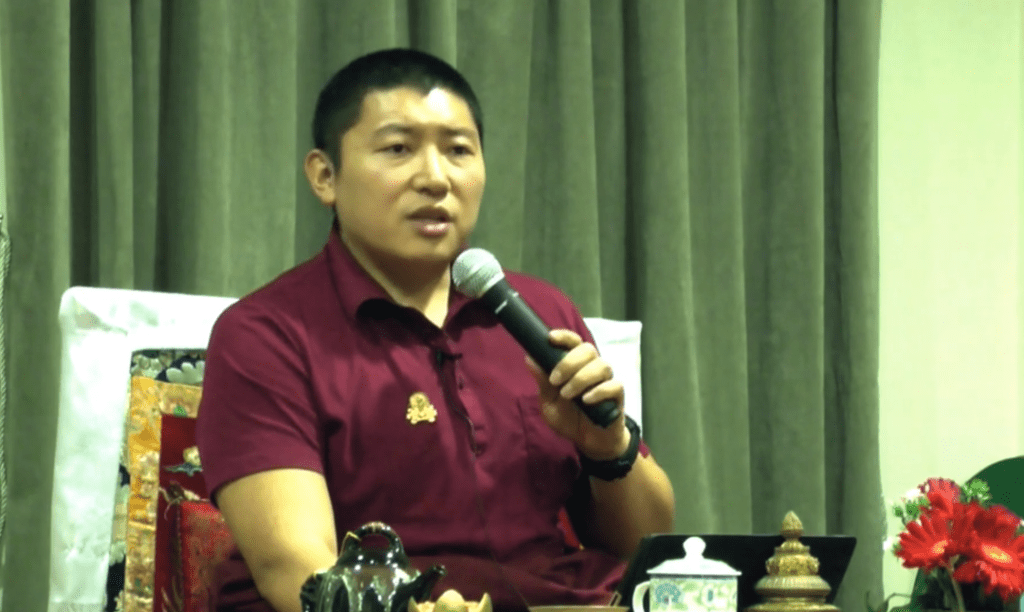Learning how to improve helps us to ripen our Dharma practice. Phakchok Rinpoche reminds us of some simple reflections that can benefit practice in this video excerpt from a teaching given in Singapore.
Learning how to improve means remembering the kindness of the teachings, and the kindness of all beings in the past and present who allow us to receive the teachings. We can remember all those who practiced before us. Often we forget the kindness of others, and we don’t value life. But we can appreciate the Dharma centers where we learn and the people who make it possible. There are many people doing so many things to support the teachings that we don’t even see. In history, we remember that it was the King in Tibet, King Trisong Deutsen, who invited Guru Rinpoche to come to teach.
Learning how to improve means learning holistically. Buddhadharma is not only a philosophy and it is also not just meditation. We can read many books and meditate for many hours, but there is more to it. That is not all that we can study. It is very helpful for us to read life stories and to reflect on how the great masters of the past practiced. As human beings, we face challenges every day. These stories from the past can help us to understand how to practice. Life stories and jataka tales (stories of the Buddha’s past lives) also help us to learn ethical behavior. We know how to behave correctly.
Ethics
We can reflect and learn from our mistakes. And we can cultivate the practice of good ethics. Good ethics means more than just keeping the five precepts. The five precepts are important, but true ethics can show up in very small ways. For example, what is the effect if we look at people with an angry expression? Do we consider how we appear to others in that way?
Because each person is different, we can see where we can improve individually. We can work with our own character and behavior. In that way, we learn what we can improve and then we can also enhance our good points.
Rinpoche gives us some advice from his personal experience about observing his own character. And he ends on a very positive note. We can change and we can improve! But it takes time!










Responses